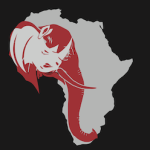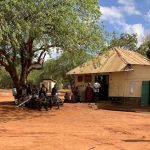The vote to make slaughtering the animals for their hides illegal in 55 countries followed lobbying by British charities
Jane Flanagan, Africa Correspondent
February 19 2024, The Times
The trade in donkey skins has been banned by the African Union, ending the legal slaughter of the continent’s animals to produce a traditional Chinese medicine made from boiled-down hides.
Approximately six million donkeys are killed each year to produce “ejiao”, once known as the “medicine for emperors”, which makers claim reduces wrinkles and boosts energy and libido. Ejiao sells for about $780 per kilogram in China.
The ban, announced at a gathering of the bloc’s heads of government in Ethiopia, followed lobbying by the British charities Brooke and The Donkey Sanctuary.
Like rhino horn and the body parts of the tiger, ejiao has centuries-old historical roots. Its popularity has been driven by the rapid expansion of China’s middle classes. Skins were originally sourced locally, but when China’s donkey numbers plummeted, producers began relying on foreign suppliers. Chinese-owned slaughter houses began opening across Africa and demand was linked to a rise in donkey rustling, terrible cruelty to the animals, which were often skinned alive, and a devastating impact on poor communities.
The loss of a donkey often pushes families into poverty and leaves the task of fetching wood and water to women and children, putting them at risk of attack or forcing them to drop out of school. The animals are stubbornly difficult to breed and the gestation period lasts more than a year. Orders from China have led to shortfalls in donkey populations in many African countries. That has pushed up their price and made donkeys unaffordable for those who rely on them for their livelihood.
The African Union’s vote at the weekend makes slaughtering donkeys illegal in 55 countries.
“This is a terrific moment for communities in Africa who have benefited from donkeys since time immemorial,” Raphael Kinoti, Brooke’s east Africa regional director, said. “Donkey slaughter for its skin has had many negatives, from eroding livelihoods in Africa to robbing the continent of its culture, biodiversity and identity.”
The ban in Africa is a start and activists hope that it will be extended worldwide. In Brazil, where large numbers of donkeys are also trafficked and killed for their skins, a bill to outlaw their slaughter is expected to pass the National Congress this year.
But effective implementation is likely to be a challenge as ejiao production is lucrative. In 2020 sales were worth 53.5 billion yuan (US$7.43 billion), up from 19.6 billion yuan ($2.72 billion) in 2013. At the current rate of demand, 6.7 million skins would be needed by 2027 to keep pace.
Rules against trading in ivory and rhino horn led to lucrative trafficking in wildlife products linked to organised crime.







